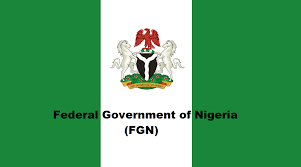Partners in the Livelihood Improvement Family Enterprise in the Niger Delta (LIFE-ND), comprising the Federal Government, the Niger Delta Development Commission (NDDC), and the International Fund for Agricultural Development (IFAD) have reaffirmed their commitment to empowering women and youths to boost agribusiness and strengthen livelihoods across Niger Delta communities.
The pledge was made at the close of the 5th Joint Supervision Mission of the LIFE-ND project held in Benin City, where the Edo State Government also reiterated its resolve to sustain and expand the initiative.
Speaking at the event, IFAD Country Director, Mrs. Dede Ekoue, described the LIFE-ND project as “more than a development intervention,” calling it “a movement of hope, resilience, and transformation for young Nigerians.” Represented by the Country Programme Analyst, Dr. Ogunniyi Adebayo, Ekoue commended the enterprise and innovation displayed by project beneficiaries and reaffirmed IFAD’s commitment to scale up its successes.
“From our field visits, LIFE-ND stands as a living testimony of how targeted investments in youth and women can transform communities. IFAD remains committed to scaling this success through additional financing to reach more youths and women and deepen the impact that has already begun,” she said.
Also speaking, the NDDC representative, Mrs. Stella Manureh, emphasized that the LIFE-ND project continues to play a critical role in promoting growth and stability in the Niger Delta region, reaffirming the Commission’s dedication to its sustained success.
The National Coordinator of the project, Dr. Abiodun Sanni, explained that the supervision mission “diligently assessed the progress of project implementation across participating states, reviewed achievements and challenges, and engaged with beneficiaries, project staff, and partners.” He noted that the session provided an avenue to consolidate key findings, reflect on lessons learned, and outline actionable recommendations to improve the project’s effectiveness and sustainability.
Sanni highlighted finance, market linkages, and climate resilience as some of the major challenges facing the programme, noting that these issues were thoroughly deliberated during the mission.
Edo State Commissioner for Agriculture and Food Security, Dr. Jerry Uwangue, described the supervision mission as a significant milestone in the collective effort of all stakeholders to improve rural livelihoods. He reaffirmed the state government’s collaboration with LIFE-ND partners under the proposed LIFE-ND Plus Initiative, aimed at consolidating the project’s achievements and extending its reach to more communities and beneficiaries.
In his closing remarks, Edo State Project Coordinator, Mr. John Omoruyi, expressed appreciation to the Mission Team for their professionalism and constructive feedback, stating that their insights would further strengthen project delivery and sustainability.
“As we conclude this mission, we reaffirm our commitment to implementing the agreed action points with renewed energy and accountability. Edo State will continue to prioritize transparency, efficiency, and inclusiveness in driving the goals of rural transformation, poverty reduction, and agricultural development for our people,” Omoruyi said.
The LIFE-ND project, initiated by the Federal Government of Nigeria, was launched with a $60 million loan from IFAD to enhance income, food security, and job creation for rural youth and women through sustainable agri-enterprise development. The project operates across nine Niger Delta states—Abia, Bayelsa, Cross River, Delta, Edo, and Ondo (funded by IFAD), as well as Akwa Ibom, Imo, and Rivers (funded by NDDC).
After six years of implementation, the project has directly impacted over 26,400 beneficiaries, surpassing its initial target of 25,500. To build on this success, IFAD, with approval from the Federal Government, has provided an additional $32 million in financing to extend the project for another three years beginning 31 March 2025.
The additional funds will be used to consolidate gains from the first phase, enroll 13,050 new incubatees, and support 51,775 beneficiaries with business development services across the six IFAD-funded states.















